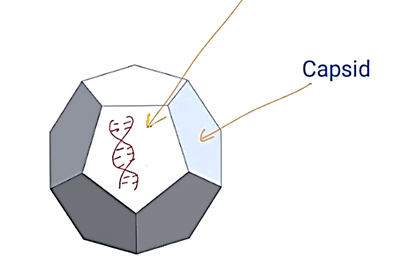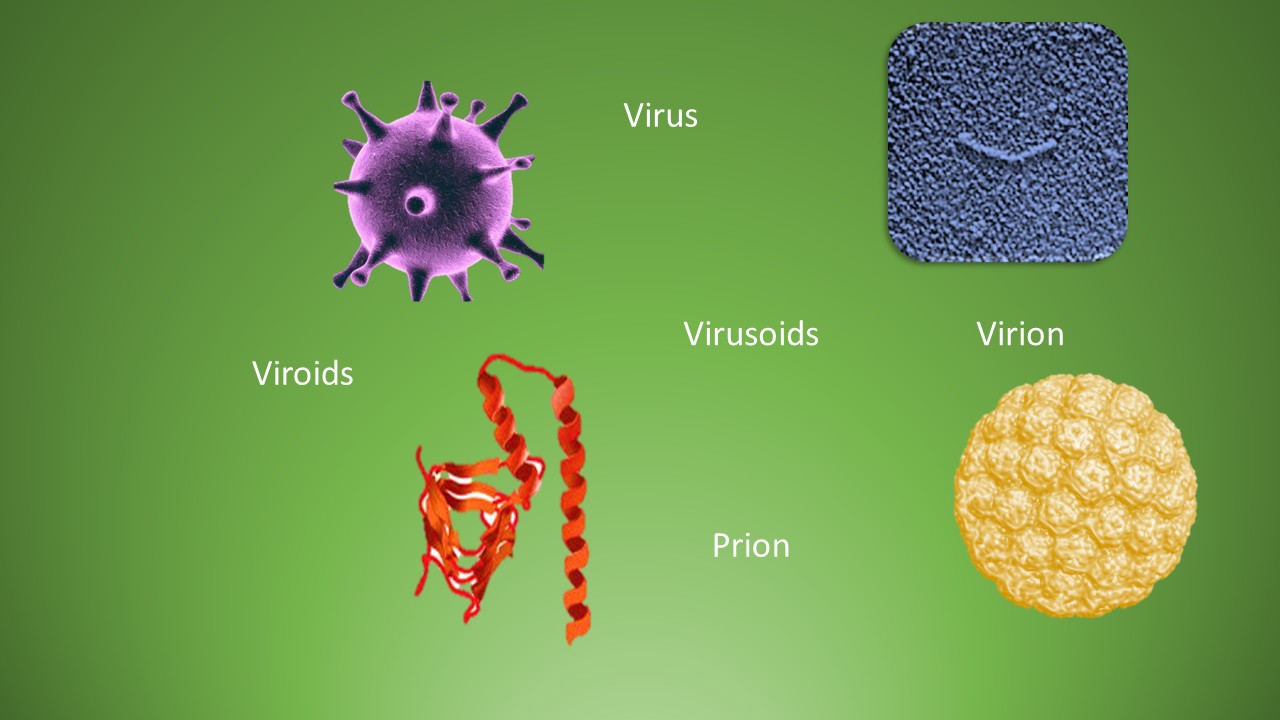
virus
?Virus is a small entity consist of either DNA or RNA as genetic material.
?Genetic material is enclosed by protein coat called capsid.
?Virus may or may not surrounded by outer lipid membrane called envelope.
- Virus infect all types of organisms.
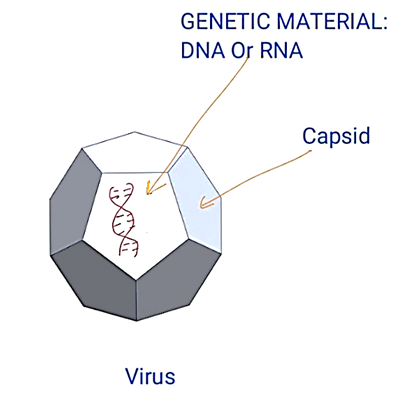
Virion
1. Virion is a complete functional virus that has the capacity to infect living tissue.
2. It includes the genetic material either RNA or DNA, capsid, envelope and membrane proteins.
3. Membrane proteins allow the virus to bind to its host and enter it.
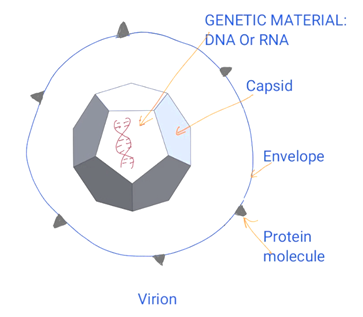
Viroid
- Viroid is smaller than virus.
2. Viroid is single stranded covalently closed infectious RNA molecule without capsid.
3. They replicate by RNA-RNA transcription and lack protein coding.
4. Viroids only infect plants.
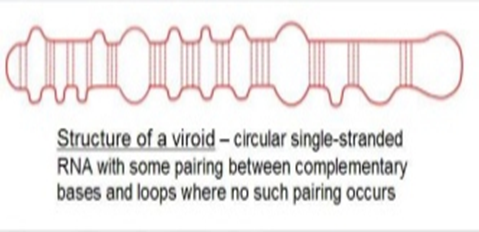
Virusoids
- Virusoids possess linear or circular RNA as genetic material.
2. Virusoids can not replicate autonomously they require the cells infected with a virus that function as a helper for replication.
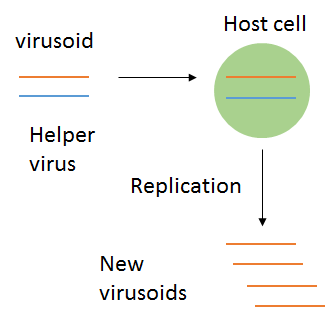
Prions
1.Prion is misfolded protein which is infectious in nature.
2. Prions are encoded by host chromosomes.
3. Prion protein triggers normal protein to fold abnormally which causes disease.
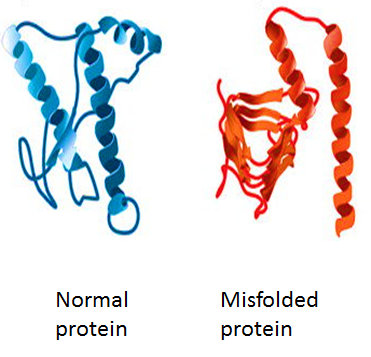
Thanks for reading.
